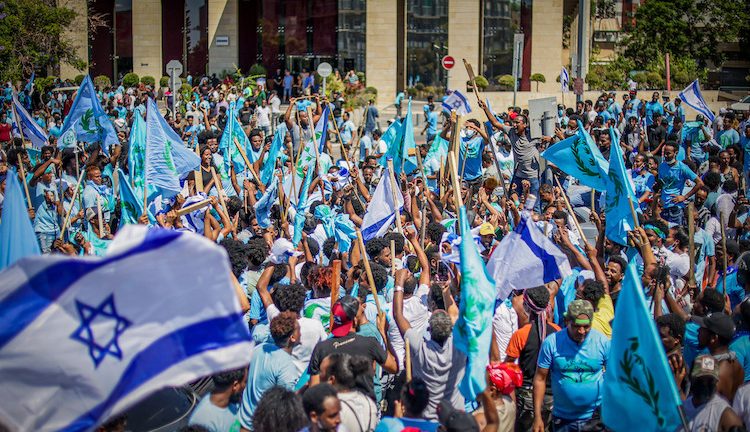By Lisa Vives, Global Information Network
NEW YORK | TEL AVIV. 4 September 2023 (IDN) — Violent clashes in Tel Aviv over the weekend between supporters and opponents of the Eritrean regime of Isaias Afwerki threaten to break ties between Jews and Eritreans dating back to the 19th century.
Some 170 people were injured in clashes with police and in-fighting between groups of supporters and opponents of the Eritrean regime.
About 25,000 African migrants live in Israel, mainly from Sudan and Eritrea, who say they fled conflict or repression. Israel recognizes very few as asylum seekers, seeing them overwhelmingly as economic migrants, and says it has no legal obligation to keep them.
The melee was the latest violence to break out at global festivals marking 30 years of Eritrean independence but which have sparked fury among the opponents of longtime Eritrean President Afwerki, one of the most repressive leaders in the world.
Clashes have also flared at recent Eritrean events across Europe and North America. Government critics have sought to use the celebrations as a way to draw attention to the human rights abuses carried out under Afwerki.
In Canada last month, at least two state-sponsored Eritrean festivals were canceled in Toronto and Edmonton after violence broke out among protesters and government supporters.
Activists criticize the events as propaganda for the government, which rights groups call a “one-man dictatorship.” Eritrea has “no legislature, no independent civil society organizations or media outlets, and no independent judiciary,” Human Rights Watch wrote in its annual report this year.
In Israel, Eritrean activists said they warned police that there could be violence Saturday and requested that the event be canceled. “We said there would be violence,” an Eritrean resident told Haaretz newspaper. “They didn’t listen to us.”
About 18,000 Eritreans live in Israel, according to government figures. They are some of the tens of thousands who have fled Eritrea in recent years, escaping repression that includes forced labor and the possibility of lifelong military conscription.
Across the Sinai
Eritreans typically fled to Israel across the Sinai Peninsula in Egypt, where they were often ensnared in human trafficking networks and forced to pay ransoms for their release, according to rights groups. Israel built a fence along its border with Egypt in 2010, effectively cutting off the flow of African refugees and asylum seekers, mainly coming from Eritrea and Sudan.
Once in Israel, Eritreans and other Africans have no pathway to asylum. Instead, the state classifies those who enter illegally as “infiltrators,” subjecting them to restrictions that limit where they can live and work.
The Israeli government has also offered to pay African migrants to leave the country or face prison time if they are caught.
After the recent clashes, Prime Minister Benjamin Netanyahu said “a red line” had been crossed. He ordered a new plan to remove all African migrants that he described as “illegal infiltrators”.
Jews first settled in Eritrea in the late 19th century, emigrating from Yemen. Many Jews came to the country in search of economic and commercial opportunities. In 1905, the Asmara Hebrew Congregation was formed.
During the 1930s, many Jews arrived in Eritrea, fleeing Nazi persecution in Europe.
Under international law, Israel cannot forcibly send migrants back to a country where their life or liberty may be at risk. [IDN-InDepthNews]
Photo: Eritrean asylum seekers protest against the regime in Tel Aviv, 2 September 2023 (Itai Ron/Flash90)
IDN is the flagship agency of the Non-profit International Press Syndicate.


